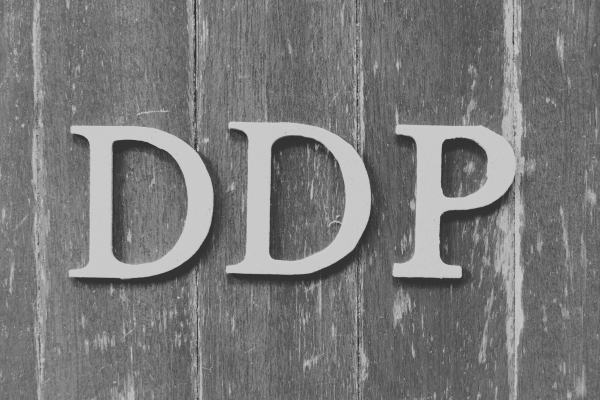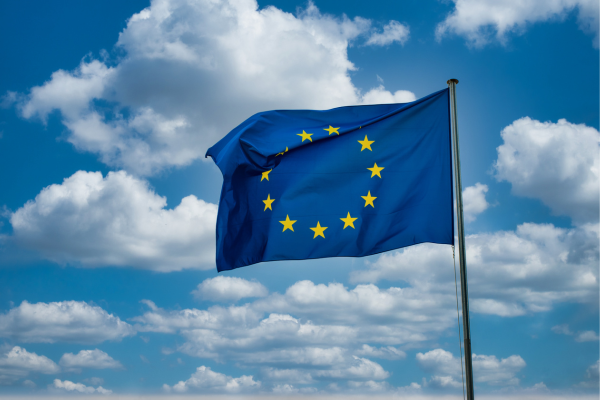BY:
SHARE:

Imagine a tool that could bring clarity and legal protection to your sales contract. That’s the power of Incoterms®. When both parties agree to an Incoterm®, they are bound by the obligations in the published rules, providing a solid foundation for your business transactions.
Consider how Incoterms® cannot only protect your business but also give you a competitive edge, leading to increased business opportunities and higher profits. Understanding and using Incoterms® correctly can be the key to winning more business and boosting your profits.
What are Incoterms® and what do they do?
Incoterms® are not just a set of terms but a comprehensive framework that determines the responsibilities and costs in a contract to supply goods. The use of an Incoterm® commits each party to specific obligations. They define where delivery takes place, where the risk of loss or damage passes, the obligations relating to moving goods, and who pays for specific costs. This means that the choice of an Incoterm® can have significant implications for exporters, as it defines what they must do, what they must pay for, and where they carry the risk if the goods are lost or damaged. It's important to note that while Incoterms® don’t define when payment is due or revenue recognised, they do agree on a specific place of delivery, which means that Incoterms® may indirectly determine payment time if payment is linked to the delivery time.
What needs to be considered when agreeing on an Incoterm®?
The first thing for the exporter to consider is whether a term is even possible. Notably, the Incoterm® DDP (Delivered Duty Paid) places the most significant responsibility on the exporter, including the clearance of the goods through Customs authorities in the country of delivery and payment of import duties and taxes. Depending on local rules and practices, this may be impossible unless the exporter has legal status in the country. Even if possible, it will impose costs, risks, and responsibilities that need to be carefully investigated first. An unwise choice can be costly.
Who should agree on the Incoterm®?
Exporting companies need to exercise meticulous control over the use of Incoterms®. They should have a clear, written policy on the subject and ensure that everyone involved in exports, from sales to shipping, to finance, has received comprehensive training. This training will empower them to make informed decisions and understand the implications of each Incoterm®. An Incoterm® should never be agreed upon before the impact on the business has been thoroughly assessed.
How can Incoterms® help to win more business?
By including the choice of Incoterms® in negotiations with customers, exporters may win more business and, in some cases, increase productivity.
It’s important to stress that any negotiation on the rule used should be approved at a senior level and carried out with full knowledge of all the implications.
Sometimes, an exporter may win business by offering an Incoterm® that is more attractive to the buyer at relatively little cost to the seller. This might particularly apply when the exporter ships goods frequently and, perhaps, can enjoy preferential shipping rates, compared to those the buyer might be offered. Also, suppose an exporter has an open-cover insurance policy. In that case, it may be cheaper to select an Incoterm® that places more risk on the exporter (such as DAP - Delivered At Place) than one where the exporter has to buy insurance for the customer (such as CIP or CIF). But take care, as changing from a C to a D term (which is what we described above) might also impact when payment is received, if the contract relates the payment date to the delivery time.
The exporter can also win business simply by understanding the buyer's preferences. Suppose the customer is risk-averse in matters of shipping and Customs compliance. In that case, they may be prepared to pay a significantly higher price in return for the exporter taking more responsibility. This might particularly apply if the customer is not a regular importer or if the exporter is competing with local suppliers offering to make life easier for the buyer by delivering without the perceived complications of import declarations and payment of duties or taxes.
The key to success is knowledge. A successful negotiation requires a clear understanding and confidence in using Incoterms® to understand the implications for any particular Incoterm® and where the exporter has a relative advantage.
This is why Incoterms® training is important for key individuals in a company, not just those involved in customs and shipping. Strong and Herd LLP delivers high-quality training in Incoterms® delivered by dedicated trainers registered with the International Chamber of Commerce. Contact us to discuss your requirements or follow the link for details of our public training courses.
OneCall™ Email assistance as and when required; A one-call solution for all your import, export and customs enquiries. Export help. Import help. Customs help.
Stay informed about customs and international trade matters by subscribing to our OneCall™ service. This comprehensive offering includes a dedicated email helpline for support, timely practical updates direct to your inbox (Did You Know?), monthly UK Customs & Trade Briefings and access to an interactive members' area with an exclusive community for our subscribers.
International Trade Updates & Spotlight Newsletter
Subscribe to our free information emails covering international trade topics...












